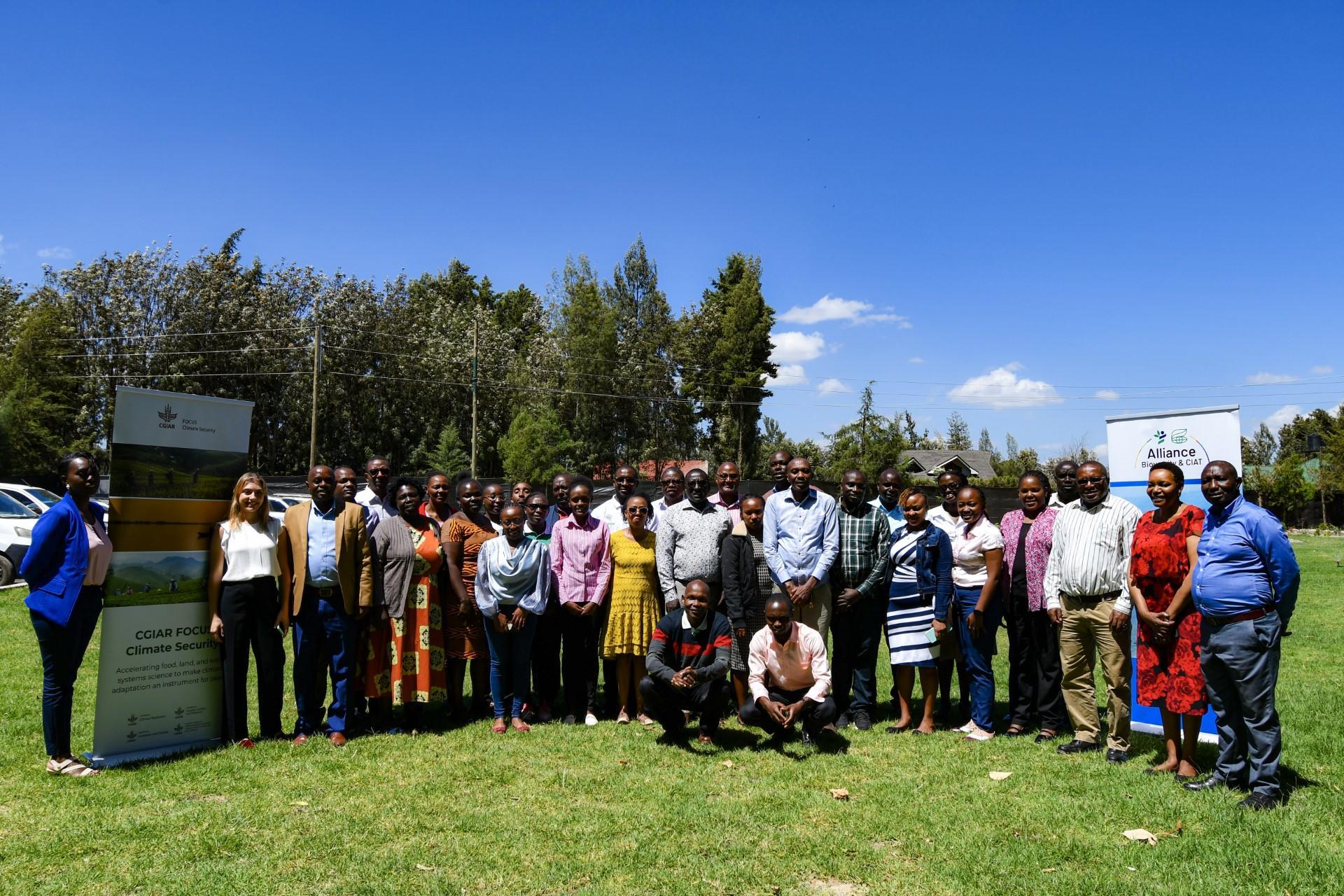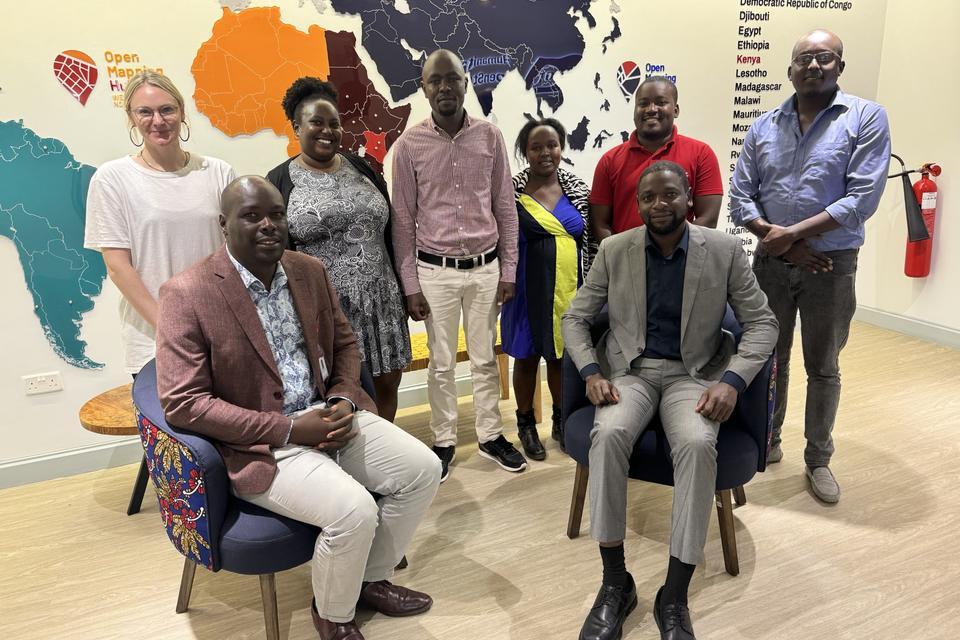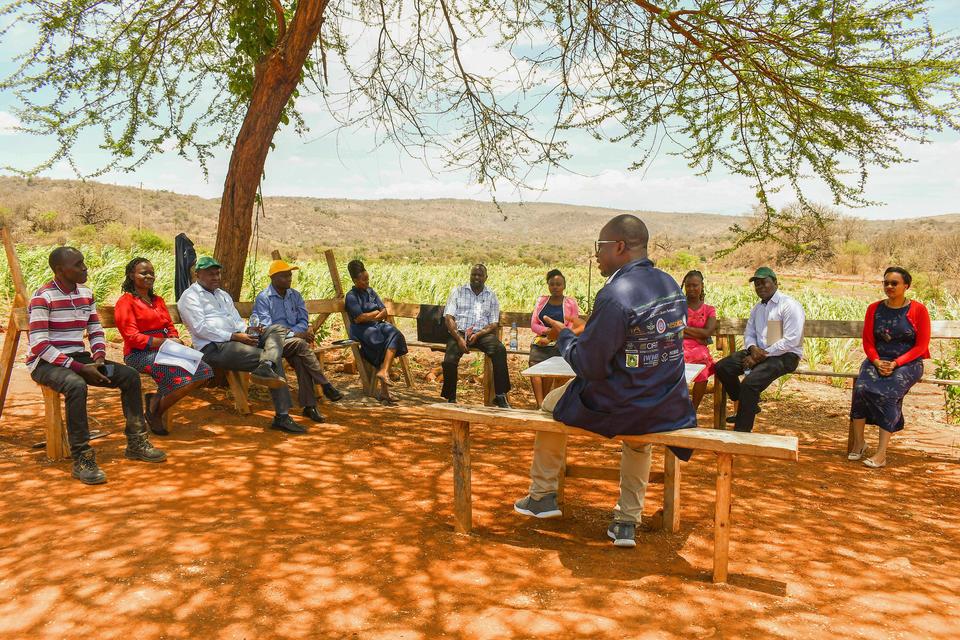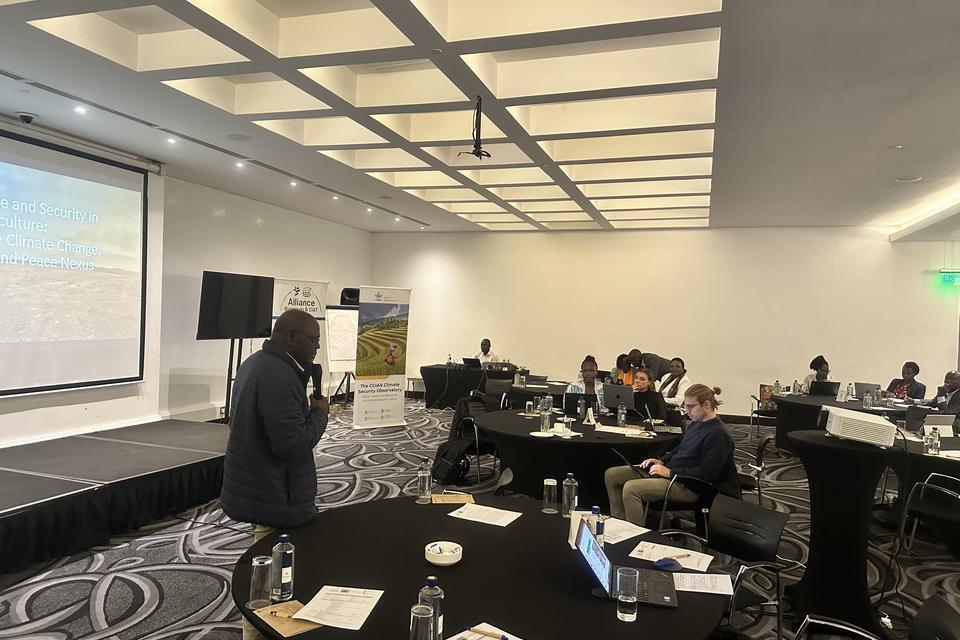From the Field Empowering Laikipia County Through Climate-smart Agriculture for Peace: A Collaborative Journey

Kenya's Laikipia County leads in climate-smart agriculture, addressing climate challenges through collaboration and innovation. A recent training marked a milestone, fostering collective action and policy alignment. The initiative empowers farmers and promotes sustainable practices for resilience.
In recent years, the impact of climate change has become increasingly evident, posing significant challenges to communities worldwide. In the heart of Kenya, Laikipia County finds itself at the forefront of addressing these challenges, recognizing the urgent need for collective action to build resilience, foster sustainable development, and ensure peace.
Laikipia County, like many regions across Africa, faces a myriad of environmental challenges, including climate extremes, biodiversity loss, land degradation, and conflicts over natural resources such as water and pasture (e.g., human vs wildlife, farmer vs herder and human vs human). These challenges not only threaten the livelihoods of local communities, but also pose risks to security and stability within the area. However, amidst these challenges lies an opportunity for transformation and innovation.
Science plays a pivotal role in addressing the multifaceted challenges posed by climate change. By leveraging scientific research and innovation, regions such as Laikipia County can access valuable insights and solutions to help communities adapt to and mitigate the adverse impacts of climate change, fostering peace and stability. To support this, through the Climate Resilience initiative the Alliance of Bioversity International and CIAT developed a training course titled Climate, Peace, and Security in Agriculture, held in collaboration with the Ministry of Agriculture and Livestock Development, Jomo Kenyatta University of Agriculture and Technology (JKUAT), and the national Climate-Smart Agriculture (CSA) Multi-Stakeholder Platform (CSAMSP).
Designed to improve the understanding of the climate, peace, and security nexus within the agricultural sector, with a specific focus on climate-smart agriculture (CSA) interventions, the course was rolled out this past week at a training workshop in Laikipia County which saw the establishment of the Laikipia County CSAMSP through the support of the Alliance and the Help Self Help Centre (HSHC). The establishment of the county-level CSAMSP marked a milestone in Laikipia County's journey towards climate-resilient peace, providing an opportunity to deepen farmers' knowledge about adaptation and mitigation efforts, thereby promoting resilience. Representatives from various sectors, including county officials, development actors and local farmers came together to chart a course for collaborative action, especially on the integration of CSA interventions with peacebuilding strategies to stabilize food production, ease pressure on natural resources, and prevent maladaptation. This integration is timely for Laikipia County, given its susceptibility to climate-related risks such as resource-based tensions among pastoralists and human-wildlife conflicts over water.
Key discussions centered on the integration of considerations on climate-induced conflict risks into county-level policies and programs, the importance of cross-silos collaboration for peace and stability, and the role of indigenous knowledge in shaping sustainable agricultural practices. Participants highlighted the need for coordinated efforts to address challenges related to water scarcity, human-wildlife conflicts, and the promotion of peace-positive climate-smart agricultural techniques.
The course pilot training served as a catalyst for collective action and collaboration towards building a more resilient and sustainable future for Laikipia County. It sets the stage for aligning county-level policies with national and international frameworks, enhancing investment in capacity-building initiatives to empower farmers, fostering collaboration among diverse stakeholders, and promoting research and innovation efforts to develop context-specific solutions for climate-induced security risks.
A similar training will be held later in the year in Kenya's Turkana County, further harnessing the power of science, partnerships, and innovation to overcome climate change challenges and pave the way for peaceful and climate-smart futures.
The Team

Benson Kenduiywo
Data Science Specialist, East Africa-Lead CGIAR FOCUS Climate Security



